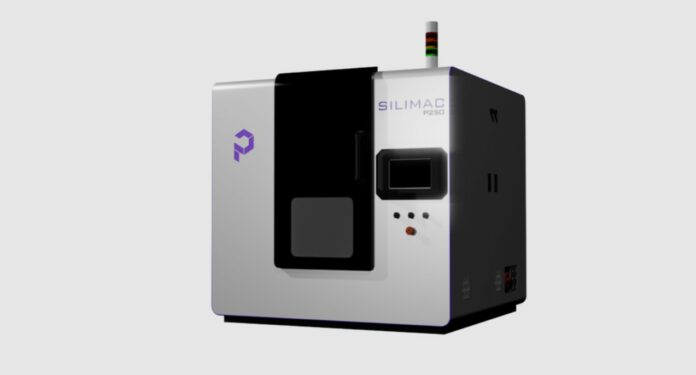India-based startup Prayasta has recently introduced a 3D printer for implant-grade silicone. The company was founded in 2017 with the goal of developing silicone-based personalized breast prostheses which are uniquely customized to every patient in terms of size, shape and weight.
With the goal of using silicone additive manufacturing to achieve this, they have been working on the development of a technology that they could use in-house. The Silimac P250 3D printer newly introduced can directly 3D print implant-grade silicone. Those implants can be personalised in terms of shape, size, and contour but also in terms of weight, stiffness and touch.
Other silicone 3D printers already available on the market include solutions from Lynxter, Spectroplast and InnovatiQ.
Prayasta’s work has been based on a design methodology called Novel Internal Architecture. The latter can enable to make breast implants rupture-proof and suturable eliminating the risk of leakage and post-implantation displacements respectively.
Although Silimac and Novel Internal Architecture were initially developed to make breast implants, the technology can be extended to other soft tissue implants such as nasal, ear, chin, malar, lip, tracheobronchial, oesophageal, etc. and also to external prostheses for soft tissues.
“Silimac P250 the 3D printer has a meticulous design that maintains the sterility of the printing environment and the material producing best quality products suitable for medical applications and long-term implantations,” said Vikas Garg, CTO, and Co-Founder of Prayasta.
“Silicone is one of the best implantable materials today and yet not 3D printable. Conventional printers cannot handle implant-grade silicone due to its inherent two-part requirement for cross-linking, form factor and extremely high viscosity. That is why, we have taken a fresh approach and developed a novel 3D printing technology from scratch“, Garg adds.
No formal technical specifications of the 3D printer have been shared from the company yet. However, we do know the printing process is achieved through real-time curing as well as IR laser & heaters. Compatible with all elastomeric, two-component, or similar materials, the machine would integrate an in-built UV sterilization for the print chamber and a contamination-free support system.
To continue its development, Prayasta is working with the Indian Institute of Science (IISc) on the transition of personalized soft tissue implants from research to hospitals. They will also assess the 3D printability of novel materials in a fast-track mode, and build a go-to-market strategy.
Remember, you can post job opportunities in the AM Industry on 3D ADEPT Media or look for a job via our job board. Make sure to follow us on our social networks and subscribe to our weekly newsletter : Facebook, Twitter, LinkedIn & Instagram ! If you want to be featured in the next issue of our digital magazine or if you hear a story that needs to be heard, make sure you send it to contact@3dadept.com






